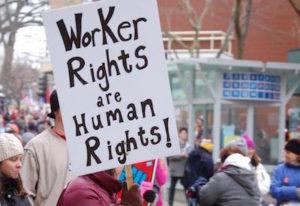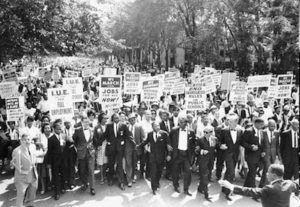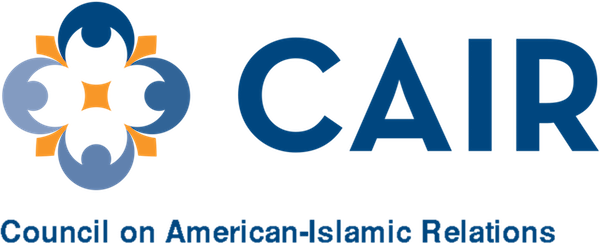

Follow Up Actions to:
Follow Up to June 6, 2017 ACTION: CAIR & IRC
 CAIR, The Council on American-Islamic Relations, the largest Muslim civil rights and advocacy organization in the United States. CAIR has four main focus areas:
CAIR, The Council on American-Islamic Relations, the largest Muslim civil rights and advocacy organization in the United States. CAIR has four main focus areas:
- Direct legal services. Someone’s access to justice should not be contingent on costs. The FBI regularly visit Muslims. Muslims are also
- Work with the media to tell our story and raise our voices. They also want to provide experts on Islam and the Muslim community to mainstream media. CAIR also trains others to be able to speak to the media because who’s story is told shapes narratives.
- Works with elected officials, candidates, and the community since so much of what drives this country is public policy. It’s important that the community knows their letters and phone calls have impact on elected officials from university officials and mayors to Senators.
- Community education to provide information to citizens and residents knowledge about their rights and resources.
SB31 – The California Religious Freedom Act: Ensure that there is not and never will be a Muslim registry or any other mandate that requires people of one community to be registered. It passed the California State Senate April 4, 2017. Now urge the CA Assembly to do the same!
Download SB31-Ltr to Assembly Speaker Renn
Send an Email to your Assemblymember through EFF in support of SB31.
The International Rescue Committee, an international organization that works with conflicts around the world. Their work in the US is primarily around refugee settlement.
The definition of a refugee is specific and defined by the United Nations:
ref⋅u⋅gee / noun / someone who has been forced to flee his or her country because of persecution, war, or violence. A refugee has a well-founded fear of persecution for reasons of race, religion, nationality, political opinion or membership in a particular social group.
Someone seeking an asylum, an asylee, go through a different process.
People with Special Immigrant Visas, SIVs, are now popular as visas for those who worked with US military forces in Iraq and Afghanistan but include other countries and special circumstances also.
More displaced people, 65 million, than since World War II. 23 million are refugees. Over half of these refugees come from only three countries: Syria, Somalia, and Afghanistan.
![]() Write to State Senator Jerry Hill (CA-District 13) on:
Write to State Senator Jerry Hill (CA-District 13) on:
AB343 – Make refugees & SIVs eligible for in-state tuition at California community colleges upon resettlement.
Download AB343-Ltr to Sen. Hill
AB349 – Give SIVs who worked with the U.S. military preference for state civil jobs similar to that of veterans
Download AB349-Ltr to Sen. Hill
Follow Up Action to Jan 27, 2017: ACLU-Northern CA
 In our Jan 2017 town forum the ACLU-Northern California chapter, the largest ACLU affiliate in the country, gave us the four biggest challenges it faces.
In our Jan 2017 town forum the ACLU-Northern California chapter, the largest ACLU affiliate in the country, gave us the four biggest challenges it faces.
The ACLU of Northern California has a civil liberties hotline at (415) 621-2488.
- Top priority of the ACLU that ensures all the other civil rights’ fights can even be fought is transparency and accountability in the government. The ACLU has filed a Freedom of Information Act (FOIA) to demand President Trump’s conflicts of interest.
- The ACLU will defend the press and media. Media comes from “medium,” thus the press is the “medium” to filter facts/truth. Concerned press corps will have not access. This is an unprecedented scale to which the Trump administration has already begun its limitations and exclusion of the press and the ACLU will be like a hawk watching and ready to act.
- The 1st amendment protection of the right to peaceful assembly, religion, and free speech is a priority for the ACLU, especially in regards to the Arab, Middle Eastern, Muslim and South Asian (AMEMSA) communities under direct attack by the new executive and Congressional powers. As of now the Muslim registry that President Trump refers to has an unclear structure but they are anticipating something similar to the registry created after 9/11, which had restrictions for Muslims who registered from certain countries and even more for Muslim men. Rather than just fighting against the registry, ACLU is fighting so that data is not able to be collected in the first place by cutting data sources off from the feds through surveillance and law enforcement restrictions.
- Protection of the 4th and 14th amendment. Police departments should not be committing acts of racial profiling. People of color (POC) disproportionally are targeted by police departments. Before the November 8th election, more focus had been given to the issues of mass incarceration, law enforcement reforms, judicial reforms to eliminate racial and economic bias. The ACLU is committed to making sure this focus doesn’t go away
“What we do in California reverberates throughout the nation.”
–Tessa D’Arcangelew, ACLU-NCA, Leadership Development Manager
Follow Up Action to Feb 8, 2017: Oppose AB165
SURVEILLANCE & DATA SHARING
The Issue: Oppose AB165 by FEBRUARY 10th!
The California Electronic Communications Privacy Act or CalECPA, also known as Senate Bill 176 (or SB176), is the most comprehensive digital privacy law in the country. It makes it a state law for law enforcement to obtain a warrant before obtaining any electronic communications from individuals or companies. This means your emails and your entire digital footprint, from emails to browser history to your calendar and contact — but you are protected from any illegal searches or seizures due to ECPA.
AB165 prevents over 6 million students and teachers from having the same protection under CalECPA as every other resident of California. Parental permission or notification is not even required to search a student. AB165 threatens our most vulnerable populations.
Here are 8 things to know about CalECPA and FAQs.
